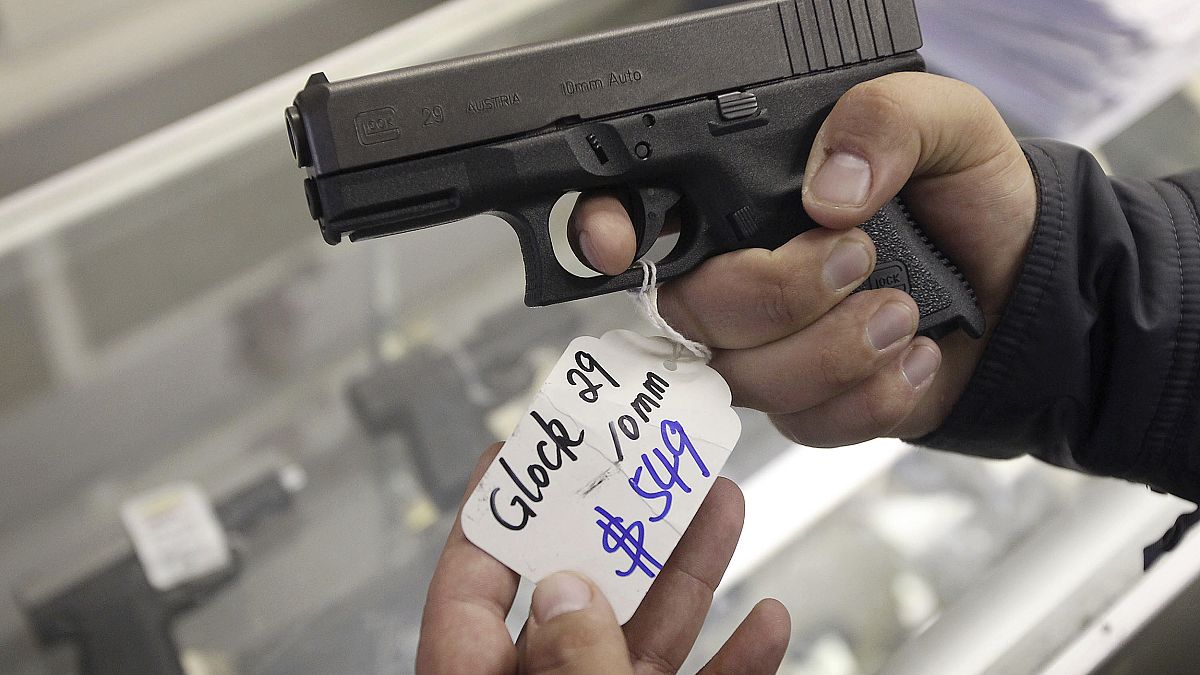Whether the problem is mass shootings, addiction or obesity, lawmakers continue to argue that higher taxes will cure the nation's gravest ailments.
By Grover Norquist and Patrick Gleason
Recent weeks have made it clear that Washington and state capitals across the U.S. are filled with politicians who never let a crisis go to waste when it can be exploited to grow the government.
Whether the crisis is mass shootings, addiction to prescription painkillers, or rising obesity (which has resulted in a majority of Americans of prime military recruitment age being unfit to serve), lawmakers from coast to coast, but predominantly Democrats, continue to argue that higher taxes will cure the nation's gravest ailments.
On the heels of the tragic school shooting in Parkland, Fla., for example, congressional and state Democrats have responded with new tax proposals. In Congress, a new bill proposes a steep federal tax hike on ammunition and firearms. That bill, introduced by Rep. Danny Davis (D-Illinois), nearly quintuples the federal tax on ammunition and roughly doubles the federal tax on pistols and revolvers.
Meanwhile in California, a new bill proposes an undisclosed tax increase on guns and ammunition. Supporters say revenue raised from the bill, dubbed the School Gun Violence Prevention Act, would fund counselors in schools.
These types of tax hikes on guns are not new, however, the Parkland shooting is just the latest excuse being used to impose them. (For example, in Senate testimony on Sept. 30, 1993, then-First Lady Hillary Clinton endorsed a national 25% retail sales tax on guns. Congressional Democrats pushed for a similar 10% handgun tax in 2013.)
Attempts to impose gun taxes at the state and local levels have yielded inconclusive results. In August of 2015, the Seattle City Council approved a $25 tax on firearms and a 5-cent tax on ammunition. The city has yet to release data on how much money the tax raised, or how it has been spent.
But guns are not the only problem Democrats (and some Republicans) are targeting with higher taxes. While Nancy Pelosi and other Democratic leaders mock tax reform-related pay raises as "crumbs," Democrats are pushing for regressive tax hikes on prescription drugs at the state level.
Legislation to impose a new tax on opioids has been introduced in at least 13 states, including New York, Minnesota, California, Kentucky, Delaware, New Jersey and Alaska. In March, the Republican-controlled Kentucky House of Representatives became the first legislative chamber to pass an opioid tax. We have not yet seen any conclusive evidence that opioid taxes will combat addiction or drug abuse. But there are indications that the cost of such a tax could be passed on to patients, and lead to higher insurance and medical costs.
Opioid taxes aren't the only tax hikes pending in state capitals this year. A handful of states are debating whether to impose carbon taxes, which opponents argue could lead to higher utility bills, gas prices, and cut into business profits. In Washington State, the legislature recently killed a carbon tax bill pending in Olympia, citing among other things potential difficulties in administering the proposal. Connecticut is weighing its carbon tax legislation, although it faces stiff opposition from business owners.
But before guns, carbon emissions and painkillers made their way into the crosshairs of money-hungry politicians, soda taxes were thought to be a potential fix for America's obesity epidemic. This effort has been financially backed in large part by former New York City Mayor Michael Bloomberg. Now, a backlash is mounting.
In 2017, voters in Santa Fe, New Mexico, a city that voted heavily for Hillary Clinton in 2016, rejected a ballot measure to impose a local soda tax like the sort endorsed by Clinton. Bloomberg and other soda tax proponents suffered another defeat only months after that, in October of 2017, when the Cook County Board of Commissioners voted to repeal the local soda tax in response to intense public frustration with it.
Cook County, where Chicago is located, was previously the largest jurisdiction in the U.S. to impose a soda tax. Now it serves as a cautionary tale for other locales considering a similar tax on soft drinks, like Multnomah County, Oregon, home to Portland. A campaign in Multnomah County to get a sugary drink tax on the books has spent hundreds of thousand of dollars so far, but no proposal has come before voters yet. It seems constituents simply do not want the government penalizing their personal preferences and consumer habits.
When confronted with a crisis or epidemic, too many politicians are unable to come up with solutions that do not involve higher taxes, more spending, or larger government in general. If politicians really want to fix the country's problems, they need to come up with real policy solution that don't involve taking money out of the pockets of working Americans.
Grover Norquist is president of Americans for Tax Reform.Patrick Gleason is Americans for Tax Reform's director of state affairs.
Opinions expressed in View articles are not those of euronews.












